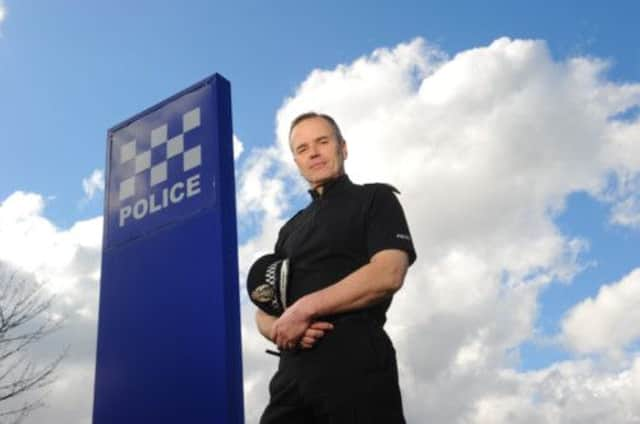Dani Garavelli: Don’t lose sight of women in sauna raids


The only city in Scotland to give saunas a public entertainment licence, it has been lauded for putting the welfare of vulnerable women before the niceties of a law which, technically, still prohibits running a brothel. However unpalatable the idea of women selling their bodies may be, the logic goes, they’re better off in a building which is subject to fire regulations than out on the streets.
That seemed to be the accepted feminist position for many years after the policy was introduced in 1986. Certainly, it’s what independent MSP Margo MacDonald believed: that women were less likely to be attacked, or to contract sexually transmitted diseases, if they plied their trade in premises which operated under the (albeit half-shut) eyes of the authorities rather than in back alleys. The fact that every time a licence was renewed, the council profited was an embarrassing, but unavoidable by-product of a trade-off that prioritised women’s safety.
Advertisement
Hide AdAdvertisement
Hide AdIn Glasgow, the police adhered to a zero tolerance policy. The result, according to critics, was more street workers at a greater risk of violence. More power to Edinburgh’s elbow.
But now this pattern seems to be changing. In June, seven Edinburgh saunas were raided by 150 officers. Prostitutes who believed their activities were sanctioned by the authorities found themselves standing in the cold as police questioned them and confiscated their mobile phones. The raids led to seven people being charged with offences including brothel-keeping and living off immoral earnings. Last week, the council ordered six of those premises to shut on the grounds they had violated the terms of their licence.
The continuing moves against saunas has been criticised by campaigners, including MacDonald, who says the women will now have no choice but to go back to soliciting.
Taking the brunt of the blame is Police Scotland – the recently unified national force under Chief Constable Stephen House – which, it is being suggested, has decided to roll out Strathclyde’s zero tolerance policy across the country, despite pledging it would be sensitive to local policing issues.
Some flak is well-deserved. At the same time, I think it would be a mistake to assume that a policy brought in more than 20 years ago is necessarily appropriate today, or that the distinction between the approaches taken by Glasgow and Edinburgh is as black and white as it once was.
Though Glasgow does still favour zero tolerance, the emphasis is very much on targeting kerb crawlers, with the women arrested only if they refuse to go home. The police crackdown is complemented by work done by the organisation Routes Out, which runs a drop-in centre for prostitutes and has helped a quarter of the almost 500 women it has dealt with since 2010 to get off the streets.
Meanwhile, groups such as The Women’s Support Group and Zero Tolerance were questioning an approach which effectively sanctions the exploitation of women long before Police Scotland made its move on the Edinburgh saunas. Zero Tolerance says women need “exit routes, not bosses with licences” and one member unsuccessfully objected to the renewal of all 15 licences late last year.
It is important to remember that Edinburgh’s policy was predicated on the idea that licensed establishments would be safer and more accountable than those operating under the radar. This may be true in countries where it is legal to run a brothel and premises are subjected to regular inspections, but in the capital they seem to occupy a legislative limbo. On the one hand, they have been effectively decriminalised, on the other they are almost entirely unaccountable. With no-one checking if the women have access to medical care or if are there under duress, the claim such premises offer greater security seems somewhat inflated.
Advertisement
Hide AdAdvertisement
Hide AdWhile on the streets, the plight of prostitutes – many of whom are addicted to drugs – is unavoidable. In saunas, they are invisible. If they are being raped, we’re unlikely to find out about it. And the licensing system seems to make it no easier for the women to take control of their lives by forming co-operatives or to make ownership more transparent. A recent investigation found 11 of the capital’s saunas had unincorporated companies registered at their address, none of which were required to file accounts at Companies House.
But the most compelling reason for reassessing Edinburgh’s policy is the rise of trafficking in the UK. Last year, the organisation Trafficking Awareness Raising Alliance claimed it had helped trafficked women escape from Edinburgh saunas, while Police Scotland said there was evidence some of the women caught up in its raids had also been trafficked. Surely no government, council or police force would be prepared to turn a blind eye to a global trade which, according to the Equality and Human Rights Commission, uses death threats to force compliance?
Whether it would be better for Edinburgh to abandon the practice of giving its saunas public entertainment licences, thus driving women back on to the streets, or go the full hog and license them as brothels allowing them to be properly monitored and inspected, I don’t know.
But instead of either rigidly maintaining the status quo or going in with all guns blazing, as Police Scotland appeared to do, perhaps it’s time for a reassessment which takes into account the opinions of the women involved. The priority should continue to be keeping them from harm, but perhaps, in 2013, there are better ways to do that. «
Twitter: @DaniGaravelli1